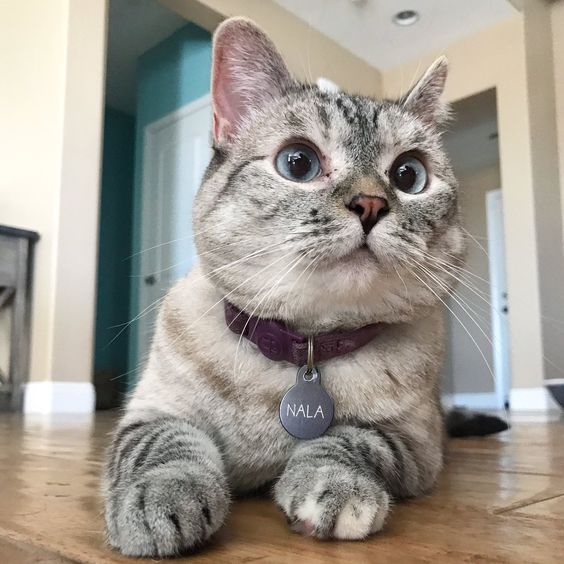When it comes to creatures with remarkable intelligence and acute sensory abilities, the cat undoubtedly stands out. Cats have captivated humans for centuries with their keen intelligence, unmatched agility, and sharp-eyed nature. In this article, we will delve into the multifaceted reasons behind why cats are considered such astute and observant animals. From their evolutionary history to their exceptional cognitive abilities, we will explore the various factors that contribute to the cat’s extraordinary intelligence and keen eyesight.

Evolutionary Traits:
The domestic cat, or Felis catus, shares a common ancestor with their wild counterparts, such as the African wildcat, Felis lybica. Over thousands of years, cats have evolved to become efficient hunters, relying on their superior intellect and sharp eyes to survive in various environments. Natural selection has worked in favor of cats with heightened intelligence and exceptional sight, enabling them to adapt and excel in different situations.
Problem-Solving Abilities:
One of the distinguishing features that exemplify a cat’s intelligence is their remarkable problem-solving skills. Whether it is figuring out how to open a door or unraveling a complex puzzle, cats constantly surprise us with their ability to overcome obstacles. This cognitive prowess can be attributed to their inherently curious nature, coupled with their efficient sensory perception.
Keen Senses:

Cats possess a wide array of senses, each contributing to their reputation as sharp-eyed animals. Their vision, in particular, is an essential aspect of their intelligence. Unlike humans, cats have evolved to see in low-light conditions, making them excellent hunters during dusk and dawn. Their eyes also contain a high number of rod cells, specialized for detecting motion and enhancing their night vision capabilities. This acute eyesight allows cats to spot prey from a distance and judge distances with remarkable precision.
Their other senses, such as hearing and smell, further amplify their intelligence. Cats have an extraordinary ability to hear high-frequency sounds, thanks to their specialized ear structures. This acute hearing aids them in detecting prey movements or even sensing potential threats from afar. Additionally, their highly developed olfactory receptors enable them to detect scents imperceptible to human noses. This heightened sense of smell helps them locate prey or identify familiar scents, making them exceptionally intelligent and adaptable creatures.
Adaptive Skills:
Cats’ intelligence is not limited to their hunting abilities or sensory perception. They also exhibit a remarkable ability to adapt to different environments. From domestic cats residing comfortably with humans to feral cats thriving in the wild, cats have demonstrated their capacity to survive and thrive in various conditions. Their intelligence allows them to adjust their behavior, navigate complex territories, and adapt their hunting techniques based on available resources, solidifying their position as highly adaptable creatures.
Scientific Explanations:
Several scientific studies have aimed to understand the neurological basis behind cats’ remarkable intelligence and sharp-eyed nature. Researchers have discovered that cats’ brain structures, particularly the neocortex, are highly developed. The neocortex is responsible for processing sensory information, coordinating complex movements, and advanced cognitive functions. This sophisticated brain architecture enables cats to exhibit problem-solving skills and adapt rapidly to different situations.
Superior Vision:

Exceptional Visual Acuity:
The cat’s vision is truly remarkable. With specialized adaptations, such as a high number of light-sensitive cells, a tapetum lucidum (a reflective layer behind the retina), and a wide range of peripheral vision, cats excel in visual acuity. These adaptations enable them to spot movements more effectively, even in low-light conditions, contributing to their status as exceptionally sharp-eyed animals.
Enhanced Night Vision:
Cats possess a visual structure that allows them to see clearly in the dark, thanks to specialized cells called rod cells. This unique feature allows them to hunt efficiently during twilight and nighttime hours. Their ability to navigate and detect prey in near-total darkness demonstrates their exceptional visual capabilities.
Conclusion:
The cat’s intelligence and sharp-eyed nature are a result of their evolutionary adaptations, cognitive abilities, and superior vision. As natural predators, cats have honed their hunting skills through countless generations, solidifying their status as remarkably intelligent animals. Their ability to problem-solve, communicate, and remember past experiences further accentuates their intellectual capacity. Additionally, cats possess exceptional visual acuity, particularly in low-light conditions, granting them the label of extraordinarily sharp-eyed animals. Indeed, these incredible qualities contribute to the enduring fascination and love humans have for our feline companions.